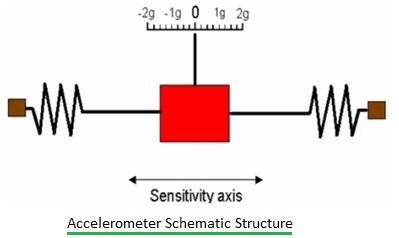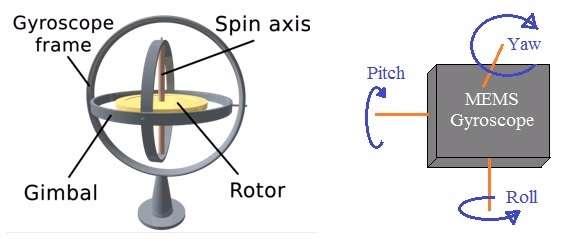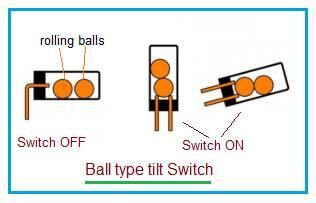Accelerometer vs Tilt Sensor: Key Differences Explained
Advertisement
This article compares accelerometer sensors and tilt sensors, highlighting the key differences between them.
Accelerometer Sensor

Figure 1: Accelerometer schematic structure
Accelerometers are versatile sensors with the following features:
- Axis Models: Available in one, two, or three-axis configurations.
- Function: Detect the magnitude and direction of acceleration.
- Applications:
- Three-axis versions are commonly used in smartphones.
- Two-axis versions are often found in cars.
- Sensitivity: High-sensitivity accelerometers can measure acceleration more easily than low-sensitivity models.
- Tilt Sensing: An accelerometer can be used as a tilt sensor. However, the reverse isn’t always true. For example, a mercury-based tilt sensor cannot measure acceleration.
Tilt Sensor

Figure 2: MEMS gyroscope used as a tilt sensor
Tilt sensors, on the other hand, function more like simple switches:
- Function: Primarily an ON/OFF level switch that indicates whether it is tilted.
- Operation:
- The internal contact opens when tilted.
- The contact remains closed when there is no tilt.
- The contact only opens upon physical tilting.
- Axes: Tilt sensors often measure tilting in two axes of a reference plane.


Advertisement
 RF
RF



